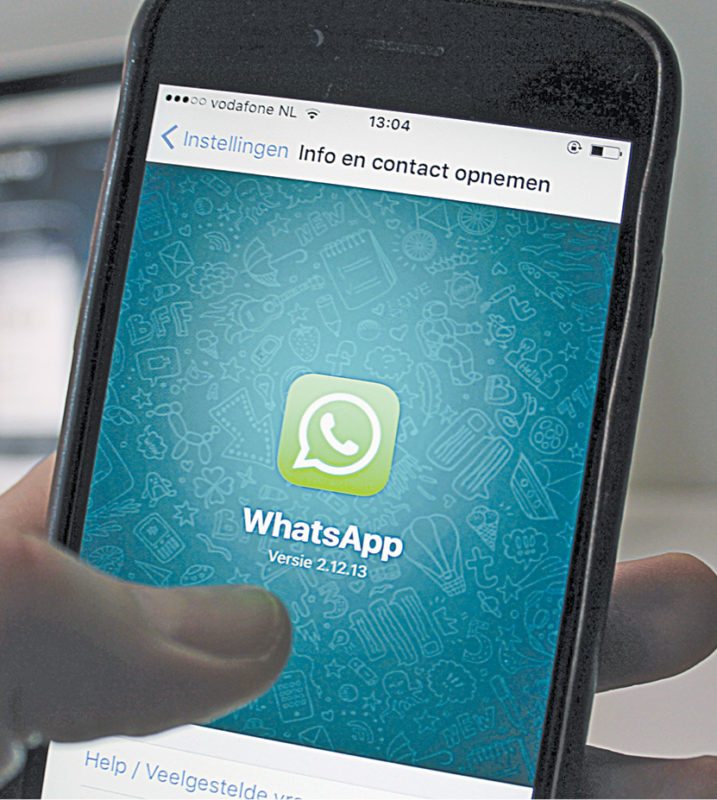 Instant messenger WhatsApp is a great way to do business. Nearly no-cost, no-frill tool, if used smartly, it can change the way communication is done in India and across the globe
Instant messenger WhatsApp is a great way to do business. Nearly no-cost, no-frill tool, if used smartly, it can change the way communication is done in India and across the globe
Back in the 1950s, communication as a concept was not much popular across the globe. The regular TV, radio and print were probably the only media. Cut to 2017, the world is literally running on communication. Be it a job application, a political campaign, a promotional campaign or anything under the sun, communication is pivotal to their success. And with a gamut of brands trying to communicate with their consumers on a daily basis, personalisation is imperative. So when WhatsApp came into existence in 2009, they took no time in exploring and exploiting its potential to make their businesses more efficient and yielding.
Sales and marketing
There is no business in this world that does not involve sales and marketing. And definitely, no company that is not looking for effective ways to either up their sales or create a lasting brand recall in the minds of their consumers. WhatsApp offers this opportunity. Brands are rapidly using this application to connect with their consumers better.
For instance, when Delhi’s Cafe TC (formerly known as Turquoise Cottage) was revamped, the owners wanted to promote its new look, new menu and happy hours amongst young target audience. However, they did not want run-of-the-mill advertising for their restaurant, and in their shoestring budget they could not have afforded fancy campaigns. Hence, their digital agency Dentsu WebChutney came up with a quirky idea to use WhatsApp for its digital campaign. The agency modified WhatsApp’s API to change their status and profile pictures to a running ticker and GIFs. The agency then used all the content—the restaurant’s new logo, new menu and new offers among others—on the ticker it had created.
The brand and its agency then promoted the campaign on social media sites such as Twitter and Facebook and asked the target audience to add their WhatsApp number to check out the restaurant’s new menu and exciting offers. The result was very impressive. The enquiries for the restaurant went up by a whopping 117 per cent while the sales surged by 28 per cent for the month.
Globally, only a few brands have tried using WhatsApp for marketing. Back in 2012, Toyota Spain partnered with the interactive agency Medialabs to develop an innovative online marketing campaign using WhatsApp. The brand invited users to put ‘Hibrizado’ (Hybridized) as their WhatsApp status, after registering themselves on the brand’s website for a week. Once done, users could enter a competition to win iPhones in a lucky draw. Toyota Spain had aimed at highlighting the benefit of their range of models with hybrid technology. Through the campaign, the brand clocked nearly 35,000 visits and over 6500 registered users in just one month.
Customer services
Customer support services play a crucial role in the success story of an enterprise. A shoddy customer support desk can tarnish the brand’s image, which, in turn, can have an adverse impact on the sales in the long run. Besides, customers these days prefer a one-on-one chat with a brand. WhatsApp offers exactly that—a direct personal chat.
“Consumers expect to engage, enquire and request service whenever, wherever, and via whatever channel suits their fancy. But addressing this paradigm shift in a positive way that delivers consistent company-customer interactions across channels and throughout every engagement is something that has an impact across the entire enterprise,” says Jim Freeze, senior vice-president, Aspect Software, in his blog “WhatsApp—Is It “What’s Next” in Customer Service?” His company, Aspect Software, offers customer interaction management, workforce optimisation and back-office solutions to enterprises.
Pune-based real estate developer VastuShodh partnered with advertising agency Setu to launch an integrated promotional campaign ‘Homes for all’ for its new projects. The company opted for both traditional and new media such as TV, print, out-of-home and social media among others to advertise its projects. However, it used WhatsApp to connect with customers for business enquiries. The real estate developer provided a WhatsApp number in its advertisements, so that potential home buyers could enquire about the projects. It claims to have received over 800 business enquiries from WhatsApp alone while creating a strong database of genuine customers.
Similarly, Rishi Gangoly of a firm called Webdudes conducts WhatsAppinar (WhatsApp versions of Webinars) for its products and services. Webdudes provides end-to-end solutions for designs and communications to enterprises.
“We can have 50 people participate in the WhatsAppinar and get information about our products/services for virtually no cost. These are interactive, so participants can engage. People who get busy during a WhatsAppinar can take calls without disturbing the peace and then get back on to the WhatsAppinar and catch up on existing questions and answers that other participants on the group may have enquired about,” informs Gangoly.The company invites prospective clients to the WhatsAppinar by email. Once registered, users get a link to join the WhatsAppinar 24 hours prior to the WhatsAppinar, following which the sessions begin. Once the sessions are over, users can post their queries or suggestions.
Freeze of Aspect Software, however, notes that for brands to use WhatsApp effectively, they need to integrate it efficiently with their other channels. “Adding a service channel that consumers use and trust makes sense to increase engagement and provide service on the terms of your customers. But if that channel is not fully integrated with access to customer data, reporting resources and the expertise of the contact centre, it will hardly deliver an optimal experience. By applying contact centre best practices to mobile customer engagements, organisations can realise better value from the channel at a lower cost, without sacrificing the disciplines and service levels that are making the contact centre the de facto centre of the customer experience.”
Internal communication
Considering the privacy that WhatsApp offers, most enterprises often use it for internal communications. Be it discussing a project to implementing employee engagement initiative, WhatsApp serves as a perfect platform to communicate. For instance, companies such as insurance web aggregator Policy Bazaar use WhatsApp for internal communications. The company has separate WhatsApp groups of each business unit as well as the management, wherein important information and updates are shared with everyone.
“For us, it looked like the perfect tool to keep everyone in the loop and help managers reach their team members at any moment of their workday. It is also a good way to maintain these employees’ engagement to their company by offering them the same information as the ones who can access the corporate website or intranet,” says Alexandra Guimaraes, an HR expert in her blog “Should you use WhatsApp for your internal communications?.”
It is interesting to note that while WhatsApp is great tool for companies to do their business efficiently, unfortunately it has not yet been explored much by India Inc. However, once they realise the value of this simple instant messenger, WhatsApp could be the next big thing in the communication space in the country.








Thanks For The Info